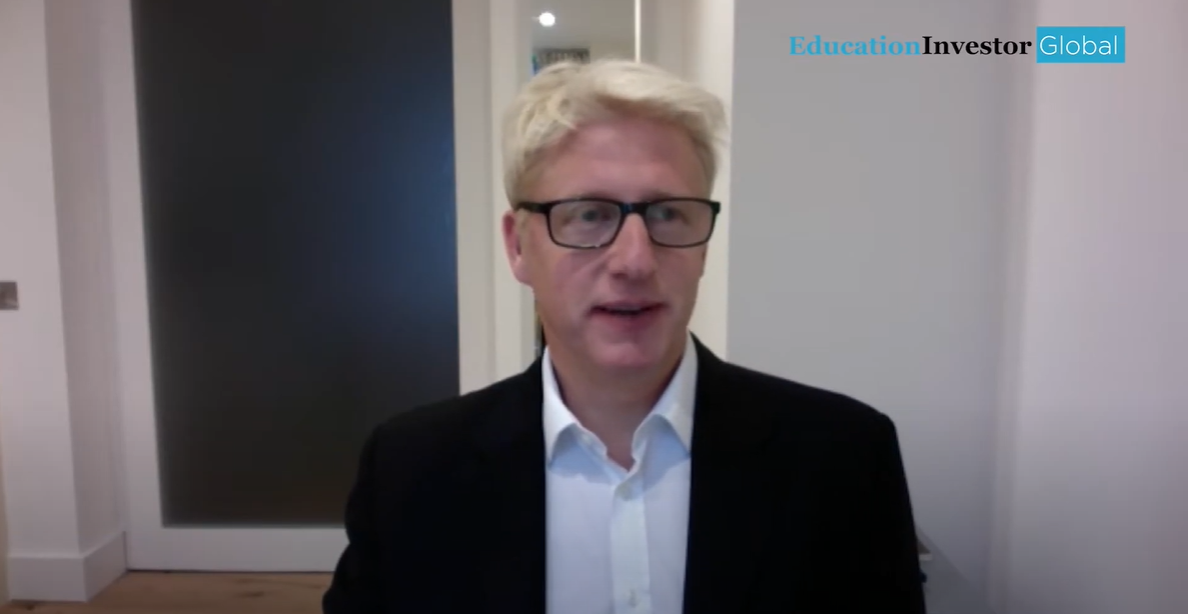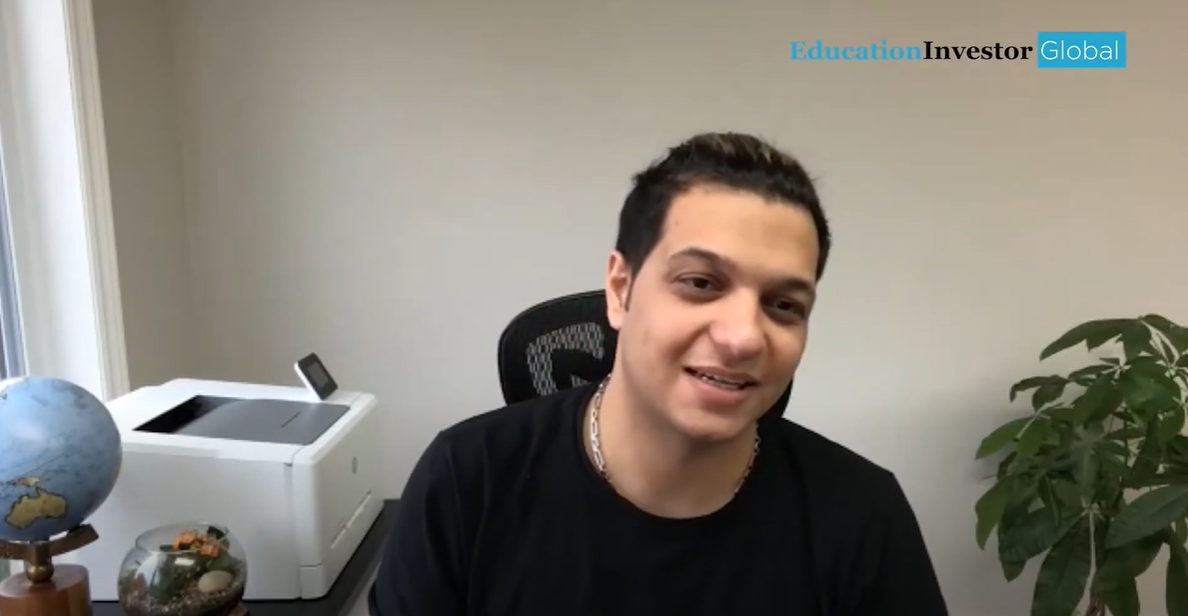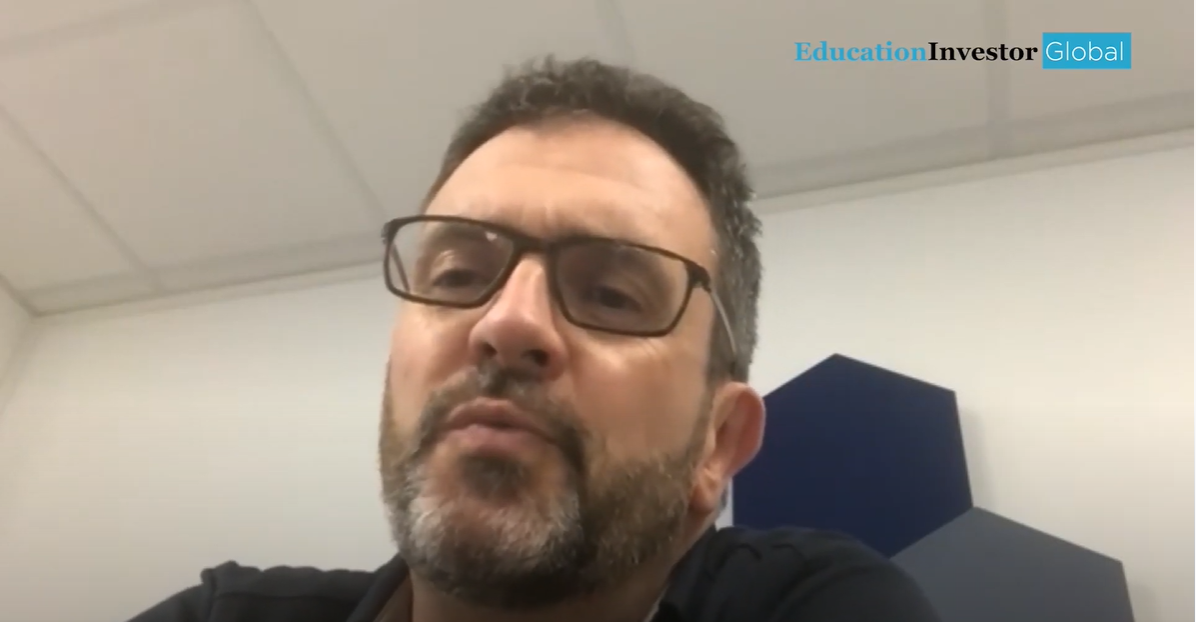Earlier this month, we unveiled an exciting new partnership between ApplyBoard and Times Higher Education (THE).
To celebrate, Josh O’Neill, Editor at EducationInvestor Global, hosted a discussion on the state of higher education in the United Kingdom (UK) amid the COVID-19 pandemic. Panellists included:
- Meti Basiri, Co-Founder and CMO at ApplyBoard
- The Honourable Jo Johnson, Chairman International at ApplyBoard
- Paul Howarth, CEO at Times Higher Education
The UK government has been proactive in its support of international student enrollment during COVID-19. It has enabled students to study online without losing their eligibility for the upcoming post-study work visa. To cope with the temporary closure of visa processing and language centres, it has given universities much greater autonomy and responsibility for the enrollment process.
Here are just a few takeaways from this insightful conversation.

Fall Enrollment
Despite promising international student registration numbers, there has been concern about whether students will turn up on campus this Fall. Is the damage as bad as Johnson, the former Minister of State for Universities, Science, Research and Innovation, anticipated?
“In an optimistic scenario, we will still see a decline, year-on-year, in terms of the numbers of students who actually enroll,” said Johnson.
How big a decline remains to be seen.
“My guess is that it’s going to be between 25 and 40%, year-on-year, in international students,” said Johnson. “Applications were very high, even during the [initial] coronavirus crisis period, which is a testament to the quality and enduring appeal of UK higher education. But circumstances have conspired against the sector in recent weeks with the reemergence of the virus across the UK, and that will, I’m sure, have had a deterrent effect on students considering their travel plans, but we won’t know for sure until the end of this month, or the beginning of November.”

The Honourable Jo Johnson, Chairman International at ApplyBoard
“I don’t expect there to be disorderly failures of any UK higher education institution,” he continued. “Our system won’t allow that. We have plans in place to protect students’ interests. Every university must have a student protection plan so that the university or college can see them transferred to other institutions through articulation agreements.”
Johnson believes that “record level” UK domestic enrollment numbers will help offset a likely decline in international students studying in the UK.
“We’ve seen a spectacular increase in participation on the domestic front this year—a 2.5% increase in the enrollment rate of 18-year-olds.”
The Student Experience During COVID-19
For Meti Basiri, the question isn’t how universities are hurting, but rather the impact studying online is having on students.
Basiri believes that it’s incumbent on the government and universities to continue to “help students and support them through this journey.” “Students deserve to know what is ahead of them,” he said. He believes that institutions must plan and communicate both best- and worst-case scenarios to students so they can make better-informed decisions about their studies.

Meti Basiri, Co-Founder and CMO at ApplyBoard
He also wonders whether students enrolled in shorter programs, such as a master’s, will ever step foot in the country where they’re studying if the pandemic continues for another year.
While students studying online may save a significant amount of money on costs such as insurance fees, Basiri acknowledges that they’re missing out on the student experience.
“I didn’t know any English before I came to Canada, and I think that face-to-face interaction is valuable for many students,” he explained.
Paul Howarth agreed.
“The [student] experience is diminished, but the absolute utmost is being done [by universities] to try and respond as well as they can, given the compromises that have to be made,” he said.
“[While] there’s a real shift towards blended and online learning, all the Vice-Chancellors I’ve spoken to absolutely recognize the importance of the networking and physical experience of actually being on campus.”

Paul Howarth, CEO at Times Higher Education
However, with fewer jobs and opportunities to travel for tourism, Howarth understands “why there’s been a big push on [domestic enrollment] in the UK, because there aren’t many options open to people in their teens and early 20s, other than progressing their education.”
International Students: A Net Positive
Over the last two years, in an effort to attract even more international students, the UK has implemented various initiatives, such as the Student Route and Child Student Route, and announced a new two-year post-study work visa.
Johnson believes that there’s “a strong consensus in the UK that we don’t want to have number controls on international students. We want to allow our universities to benefit from everything that they bring, from diversity to the learning environment, [and] many different and valuable perspectives on the challenges that we face as a country.”
International students also play a key role in supporting the research activities undertaken by UK universities. “There is a strong recognition that international students are a net positive and that far from setting controls [on the number of international students allowed to study in the UK], we should aspire to increase our market share as a country,” Johnson said.

ApplyBoard x Times Higher Education
Johnson believes that the partnership between ApplyBoard and THE “is going to be an important way in which the sector addresses the issue of over-reliance on students from a particular geographical area.”
“I do think all Vice-Chancellors want to have a diverse learning environment, and that does mean that diversification strategies are really important. That’s where the partnership between Times Higher Education and ApplyBoard is really useful. It enables students from all over the world to have an easier journey into higher education than they might otherwise, one that presents with fewer barriers. That will make it a lot easier for our higher education institutions to reach into markets which are sometimes quite hard for them to access.”
Prospective international students visiting THE’s website looking to study in Canada and other countries across the world will be able to opt in to receive assistance from ApplyBoard via referral. It’s another way we’re working to help break down barriers to international education.
The Next 12 Months

“If infections increase, that will be the core challenge moving forward,” explained Howarth. “From an optimistic point of view, the rapid adoption of blended and online learning is making universities think in a novel and innovative [way] in terms of how they deliver learning.”
Jo Johnson believes that the education sector will require “levels of leadership of an extraordinary calibre.”
“We are asking our senior teams in universities to manage a short-term crisis and create new forms of provision at the same time as preparing for fairly significant structural changes that are going to play out in the next three to five years.
“That is the disaggregation of the higher education proposition, more flexible learning, more modular funding, more opportunities for students to accumulate and transfer credit from one institution to another, and a breaking down of the barriers between further education and higher education. These are big changes coming down the line for all our higher education institutions, and Vice-Chancellors are going to have to compartmentalize their work in a complicated way to manage both the short-term crisis and the long-term changes coming down the line.”
Basiri sees a silver lining to the COVID-19 pandemic.
“I think, as a sector, we’re going to come back much stronger post-pandemic,” he mused. “It’s a reset button for institutions to rethink how they can be innovative, how they can put the student experience first, and how they can deliver a great education, regardless of the scenario.”



